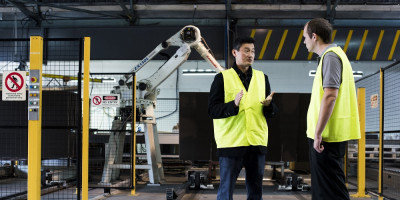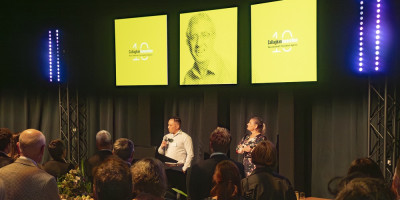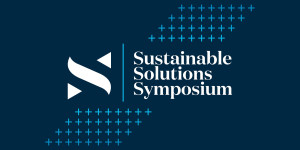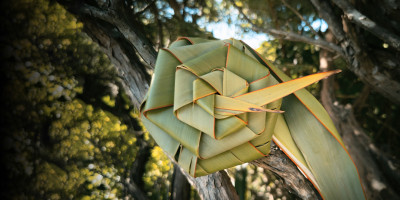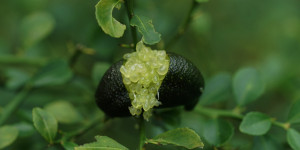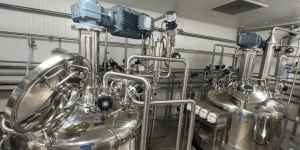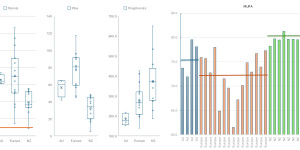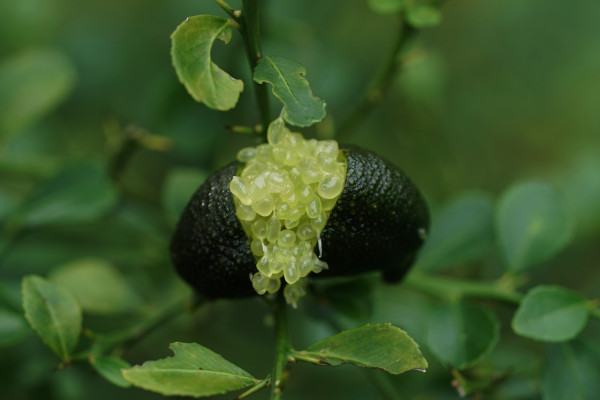With New Zealand's freshwater ecosystems facing unprecedented pressure, Wilderlab is developing a tool that harnesses environmental DNA before translating it into a health score.
At a glance
- Wellington-based Wilderlab is making environmental DNA (eDNA) testing more accessible, helping monitor and understand our freshwater ecosystems a lot more.
- Using support from Callaghan Innovation, Wilderlab is developing a tool that takes eDNA data and translates it into a whole ecosystem health score.
- Given the global interest in Wilderlab’s technology, it won’t just be New Zealand’s freshwater ecosystems that will be the better for it.
We wouldn’t be doing a fraction of the R&D work we’re doing without Callaghan Innovation. The support we’ve received has really driven the advances we’ve made in technology.
- Dr Shaun Wilkinson, Founder, Wilderlab
Protecting our biosecurity and conservation
Seventy five per cent of New Zealand’s native freshwater fish are either threatened with or at risk of extinction, and almost half of our lakes are in poor ecological health. Its unprecedented pressure for our freshwater ecosystems.
But Wellington-based Wilderlab is developing a tool harnessing the power of environmental DNA (eDNA), which it hopes will help fight that rising tide of threat.
Environmental DNA testing essentially identifies the genetic signatures present in a sample of water, soil or air, which are then matched to a reference database to identify species.

Dr Shaun Wilkinson
“We’re primarily testing water, and generally for use in biosecurity and conservation – looking for rare and threatened species, or incursions of pest mammals, fish or plants, as well monitoring ecosystems,” says Dr Shaun Wilkinson, Wilderlab’s founder.
Previously a slow and expensive process, Wilderlab has removed those barriers allowing nearly anyone to collect samples and get results back in 24 hours. This has meant that not only does their customer list include the likes councils, Department of Conservation and other government agencies, but also everyday people keen to understand what’s in their waterways.
Taking the next steps with Callaghan Innovation
With Callaghan Innovation support to commercialise its research and development (R&D), Wilderlab is creating a game-changing tool called TICI (pronounced ‘tiki’). It harnesses vast amounts of complex eDNA data to give users a simple and easy to understand ‘health rating’ for an entire ecosystem, such as a river or stream.
“Whole ecosystem monitoring is something we’ve been trying to achieve as a country for a long time, but how you actually do that is easier said than done,” says Wilkinson.
“The real value-add comes from developing metrics and insights from that data, because people can then use it to inform their management decisions. They can say ‘hey, we’ve seen a decline in this catchment over X years, so we need to allocate more funding to restoration projects in this area’.”

Dr Shaun Wilkinson at Taputeranga Marine Reserve undertaking eDNA sampling for an upcoming seaweed project with Victoria University of Wellington.
Throughout development, Callaghan Innovation support has come in the form of R&D Experience Grants and R&D Career Grants. The former for example, funding a student to help carry out fieldwork in TICI’s early stages, the latter supporting another student to work within Wilderlab, their work helping ensure TICI’s accuracy.
“We wouldn’t be doing a fraction of the R&D work we’re doing without Callaghan Innovation. The support we’ve received has really driven the advances we’ve made in technology, which are particularly important in the eDNA field, because it moves so fast,” says Wilkinson.
Offshore markets and ecosystems await
As well as getting TICI up-and-running to provide better insights for New Zealand customers – and ultimately better health for our freshwater ecosystems – the business is looking offshore.
“We already do work in Australia, but we could potentially access many offshore markets by people sending us their samples. There’s a huge amount of interest in the technology, it’s just a matter of scaling up to meet that demand,” says Wilkson.
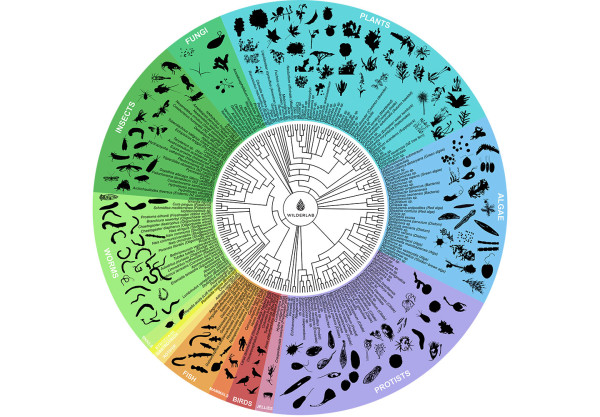
A wheel showing the diversity of species Wilderlab picked up from the Hutt River during a sampling session



